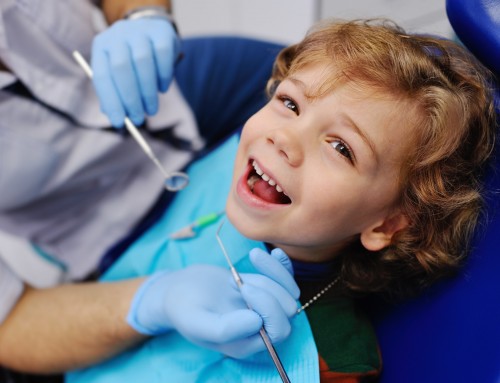Adolescence is a difficult time for all of us. Between rapid hormone changes, living through high school, growing out of childhood, and realizing mortality, teen angst is no uncommon matter.
However, there is a difference between typical teen angst and mental health issues in teens. Teens, just like any other people, can be depressed, have anxiety, develop eating disorders, and develop other mental health issues that are separate from the moody teen angst we’re all familiar with.
But how can you tell whether your teen is just being a teen, or if they need serious teen therapy to help work through their issues? Look for these 11 signs in your teen. If you notice any one of them, it’s a good idea to take them to see a therapist.
1. Substance Abuse
Our society has seemingly normalized the idea that teenagers drink and use marijuana. While it might not be totally abnormal to hear about teenagers drinking beer or doing pot, teens can easily become dependent on these substances, just like adults.
Teens also tend to self-medicate when they’re struggling with depression, anxiety, or other mental health issues. If you notice that your teen is using drugs or drinking alcohol on a regular, and excessive, basis, that’s a sign that they could benefit from therapy or teen counseling.
2. Traumatic Event
Teens can be easily triggered by traumatic events in their life. This could be the death of a loved one, parents getting divorced, a bad break-up, sexual assault, bullying, etc.
If your teen has gone through some type of trauma, it’s a good idea to set them up with a therapist. A therapist will be able to help your teen work through the trauma they experienced in a healthy way.
3. Self Harm
Self-harm is an unfortunately common practice: 1 in 5 females and 1 in 7 males will engage in self-harm behaviors each year. And of the people who self-harm, 90% start in their teenage years.
Self-harm can take a variety of forms. It can include:
- Cutting (usually on the inner arms, upper thighs, and stomach areas)
- Burning
- Picking old wounds
- Pulling own hair
- Self-hitting/slapping
Look for cuts and/or bruises on your teen’s body. If it looks excessive or purposeful, you should get your teen to treatment immediately. This could be a sign of a serious depression, and it can escalate to suicidal thoughts and attempts.
4. Consistent and/or Extreme Symptoms of Mental Health Issues
Teens are known to be dramatic, moody, irritable, and angsty. So when do you know if your teen is just being a “normal” adolescent and when these things are signs of a mental health problem?
The key is excessive, extreme, and consistent symptoms. Teens like to sleep in on the weekends. But if your teen is sleeping the entire day, every day, and not getting out of bed to eat or drink, that’s a red flag.
Teens worry about schoolwork. But if your teen so worried that they break down in panic attacks and worry excessively about doing their homework, that could be a sign of an anxiety disorder.
Teens want to look good for their crush. But if your teen is skipping meals, refusing to eat, or exercising excessively, this could be a sign of an eating disorder.
You know your teen better than anyone. If their symptoms worsen or their behavior gets more pronounced, look into teen therapy for them.
You can find therapists that specialize in specific symptoms or disorders through the Internet. The best web design for therapists will indicate sections of disorders and issues they specialize in, so you can be sure you’re taking your child to someone who can really help them.
5. Extreme Changes in Sleep
We already mentioned how teens love to sleep in: the good old days of sleeping until noon on a Saturday, right?
While this kind of sleep pattern isn’t abnormal, sleeping all day and refusing to get out of bed is. This could be a sign of depression.
If your teen normally gets up early and now suddenly can’t get out of bed, that’s a red flag. The opposite is true too: insomnia can be a sign of mental health issues as well.
6. Dramatic Drop in School Performance
Teens going through mental health issues or problems tend to lack concentration, motivation, and energy. This can lead to a significant drop in school performance, whether that’s with grades or extracurricular activities.
Is your child suddenly struggling with their classes? Do they express the same interest they did in years past about their favorite subjects? Do they put in effort into their clubs or sports teams?
Drastic changes to these things can indicate that they’re struggling with depression, anxiety, or another type of mental health issue. Therapy can help them sort through their feelings and issues.
7. Talking About Death (A Lot)
It’s not uncommon for teens to think about death, even if that does sound morbid. Many teens think about both their own death along with the reason for their existence.
One theory for why this is somewhat common in teens is because of a phenomenon called “developmental depression.” While not a true depression, this describes a type of thought process that most teens go through once they hit adolescence. As they grow out of childhood, they feel that they lose innocence and become aware of their own mortality, the fragility of life, and existential ideas.
This becomes abnormal when it seems that your teen can only talk about death and dying. An existential crisis once in a while and speaking about mortality is one thing, but constant mentions of death and dying is a whole different, and more concerning, matter.
8. Suicidal Thoughts/Attempts
Branching off from the constant talk about death is actual suicidal thoughts or attempts. Speaking about death regularly is a sign of suicidal ideations.
But if your teen, even jokingly, talks about killing themselves, they need to see a mental health professional as soon as possible. This is especially true if there have been actual attempts at suicide, even if they seem “half-hearted.”
Suicide, self-harm, and talk of suicide are serious issues that must be dealt with before there are fatal consequences.
9. Constant Anger or Irritability
Teens are moody. They can be rude and angry at the world. But there’s a point where constant anger and irritability become signs of true distress and mental health problems in teens.
Do you notice that your teen gets angrier quicker than they used to? What about without warning? Do you think they could hurt themselves or others because of this intense anger? Does their temper have specific triggers related to trauma?
Think about these questions when figuring out whether your teen’s anger is normal, or whether they need some help managing their anger and emotions.
10. Changes in Friends
Have you noticed that your teen is hanging out with a new group of kids (perhaps ones that are a “bad influence”)? Have they stopped calling their friends? Does your teen have few, or no, friends at all?
Does your teen avoid going to social gatherings? Did your teen have a falling out with their best friend or friend group?
These are all signs of a changing mental health condition in your teen. While it doesn’t necessarily mean that your teen has a mental health disorder, changing friends or losing friends can be traumatic and hard for a teen to go through.
Speaking with a therapist can help them sort through their feelings and deal with any sense of loss or change they’re going through.
11. Your Teen Asks To Go
It can be instinctual for parents to want to deny what their child is saying: “You’re not depressed, this is just a part of being a teenager.”
But this is a big mistake. Listen to your teen. They know themselves better than anyone; it takes a lot of courage and bravery for a teenager to ask to go to a therapist or to share that they think they’re depressed/anxious/have an eating disorder/etc.
It certainly can’t hurt to have your teen go see a therapist, especially when they express interest in going. You should be proud of your teen for coming to you with their problems instead of self-medicating or ignoring a spiraling mental condition.
Do You Need to Get Your Teen Therapy Treatment? Bottom Line
Therapy can save and improve lives. While you might think it’s hard to differentiate between “normal” teen angst and a serious mental health condition, these 11 signs are a good place to start.
While these, of course, aren’t the only signs that your child needs teen therapy, they are some of the most common ones you should look out for. You know your child better than anyone.
If you notice dramatic changes in their behavior or feel that they aren’t acting like themselves, taking them to a therapist can’t hurt, especially if you’re concerned about their health and safety.
Want more information about improving you and your family’s health? Check out our other health-related articles.











